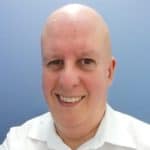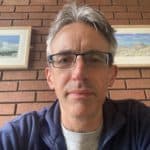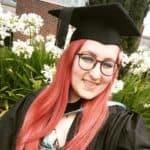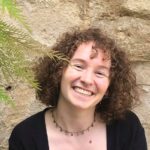Profile
Stephanie Sargeant
-
About Me:
I’m a aquatic scientist and lecturer environmental sciences. I’m passionate about the environment and all things watery! I work on understanding more about our oceans and rivers, how they work, why they’re important and how we can work to conserve them.
I love being outside, camping, paddle boarding and walking our puppy, Willow.
-
Read more
I live in the Cotswolds with my partner and work in Bristol. We live with our 8 month old puppy, Willow, who is the happiest dog I’ve ever met! When I’m not working I love to be outside and particular enjoy getting out on my paddle board on our local canal. I also love wild swimming, running and yoga. We have a small campervan and which we love going on adventures in, especially to the beach or the mountains! We have a small garden and I’m really enjoying growing our own vegetables too!
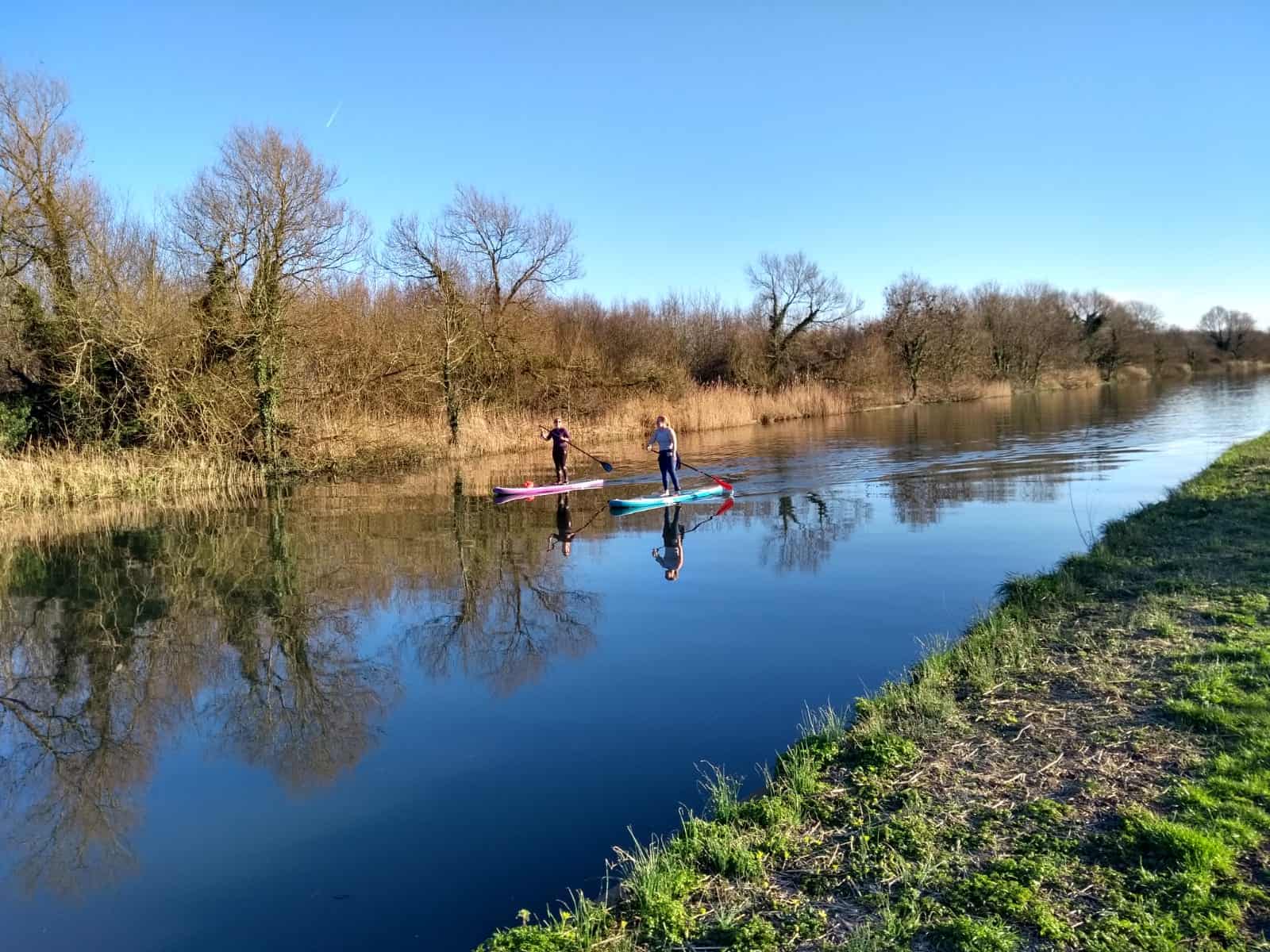
Paddle boarding on our local canal
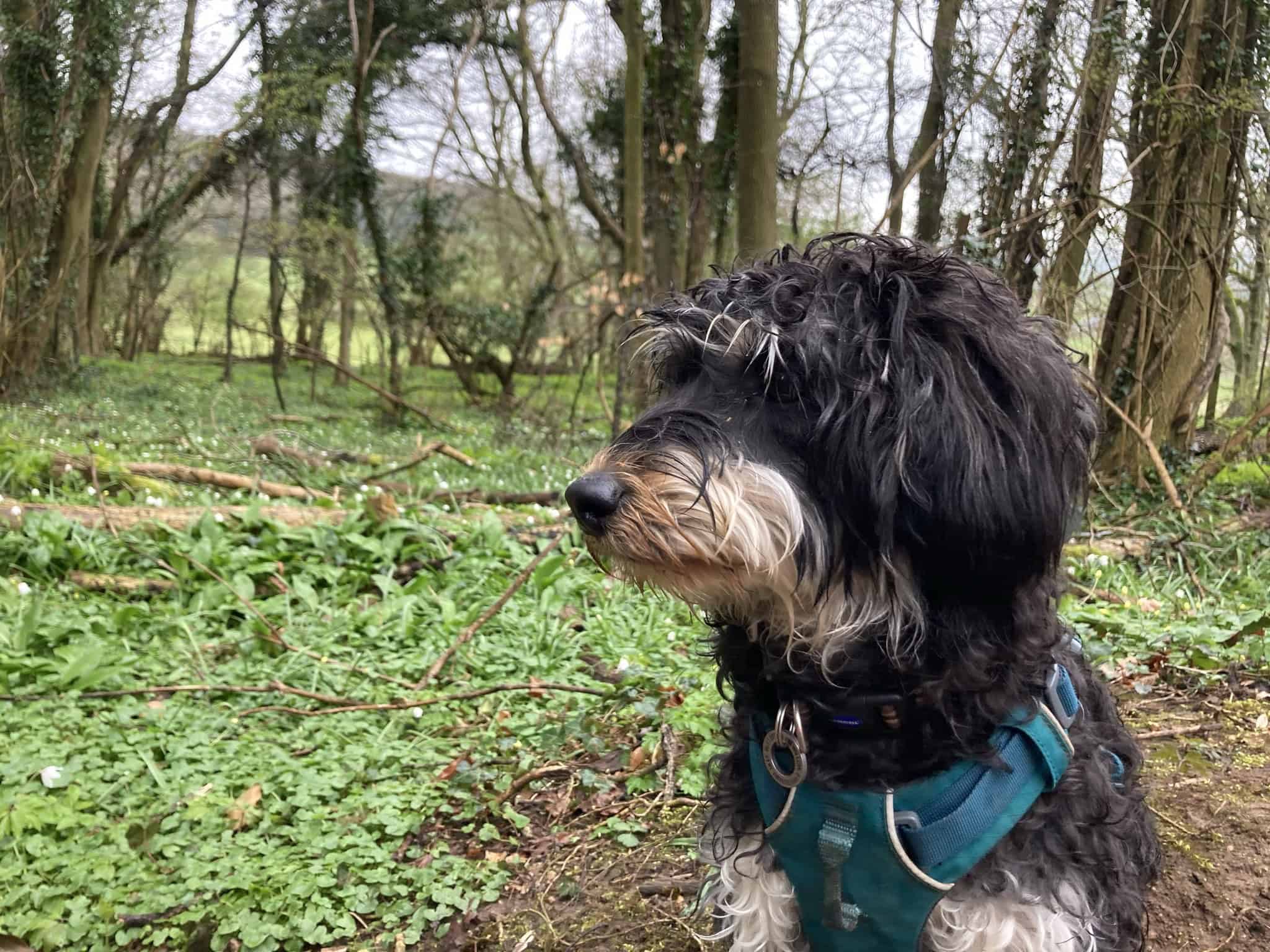
Our puppy Willow 🙂
-
My Work:
I’m a marine scientist and I love exploring the life of microbes! I do this by going out on research ships to the open ocean to collect water which I work on in the lab. When I’m not on a boat I teach students at University. I also work on rivers and water quality and how we can look after them better.
-
Read more
I’m really interested in the smallest marine life, bacteria and phytoplankton. These tiny plankton can only be seen with a microscope but live throughout our oceans. They’re really important as the base of the food chain in the oceans and for producing important gases like oxygen. They play an important part in our oceans but also impact on our climate and help to reduce the impacts of climate change.

Conducting experiments on plankton communities to see how they will respond to climate change.
My main research has been investigating what these microbes do in seawater and how this impacts our atmosphere and climate. I investigate these questions with other scientists by collecting water samples whilst on a large research vessel. We can then conduct experiments on the water samples to find out what the plankton are doing and what impact this might have on the wider ecosystem and atmosphere.
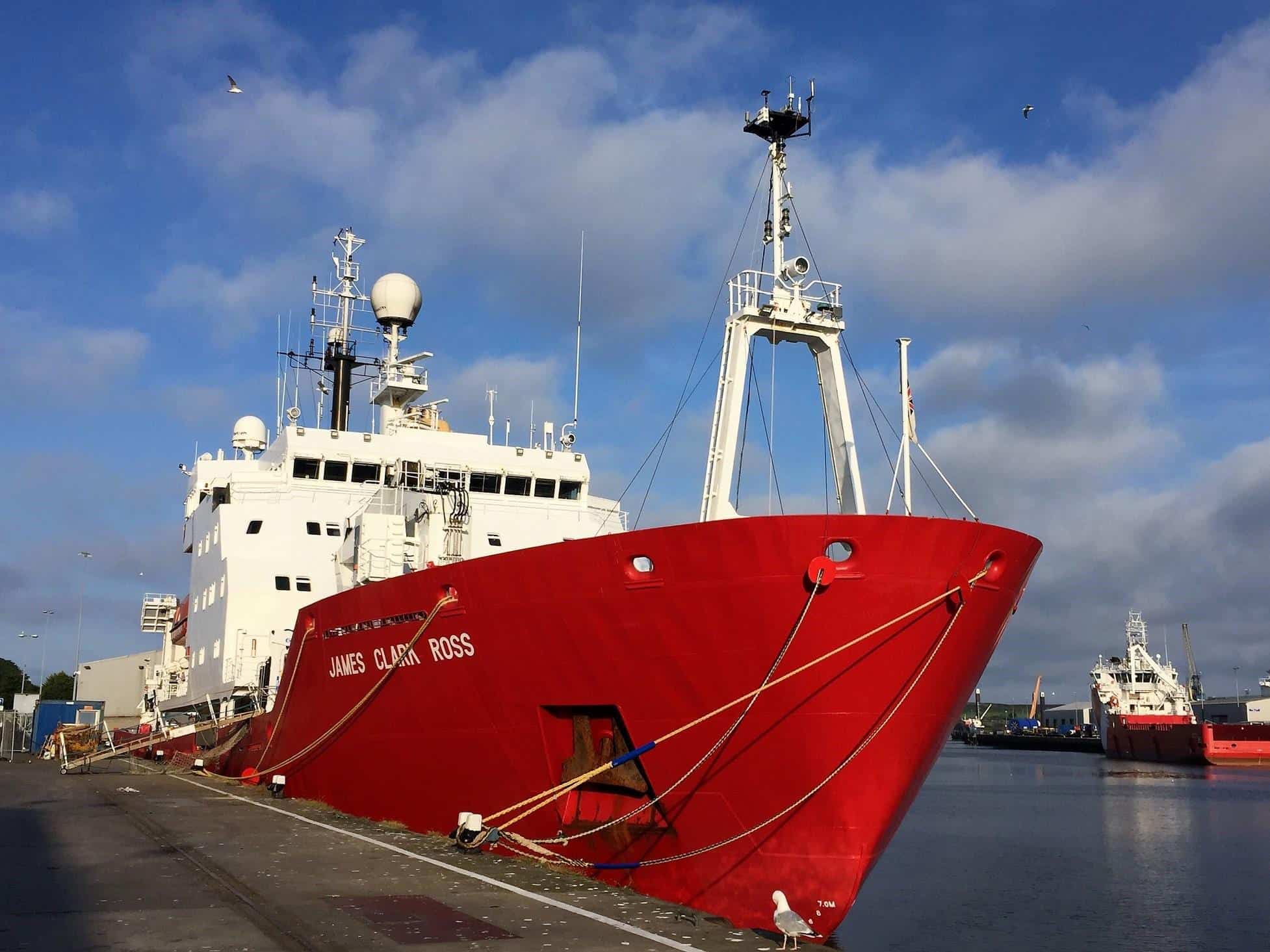
One of our research ships the RRS James Clark Ross, now replaced by the RRS Sir David Attenborough aka Boaty Mc Boat Face
On a recent expedition we went to the Arctic, near Greenland and Svalbard, to collect water samples in the sea ice to find out how these plankton might respond to the impacts of climate change. We were specifically interested in how they might respond to changes in temperature and pH. Whilst we were there we saw a polar bear too!
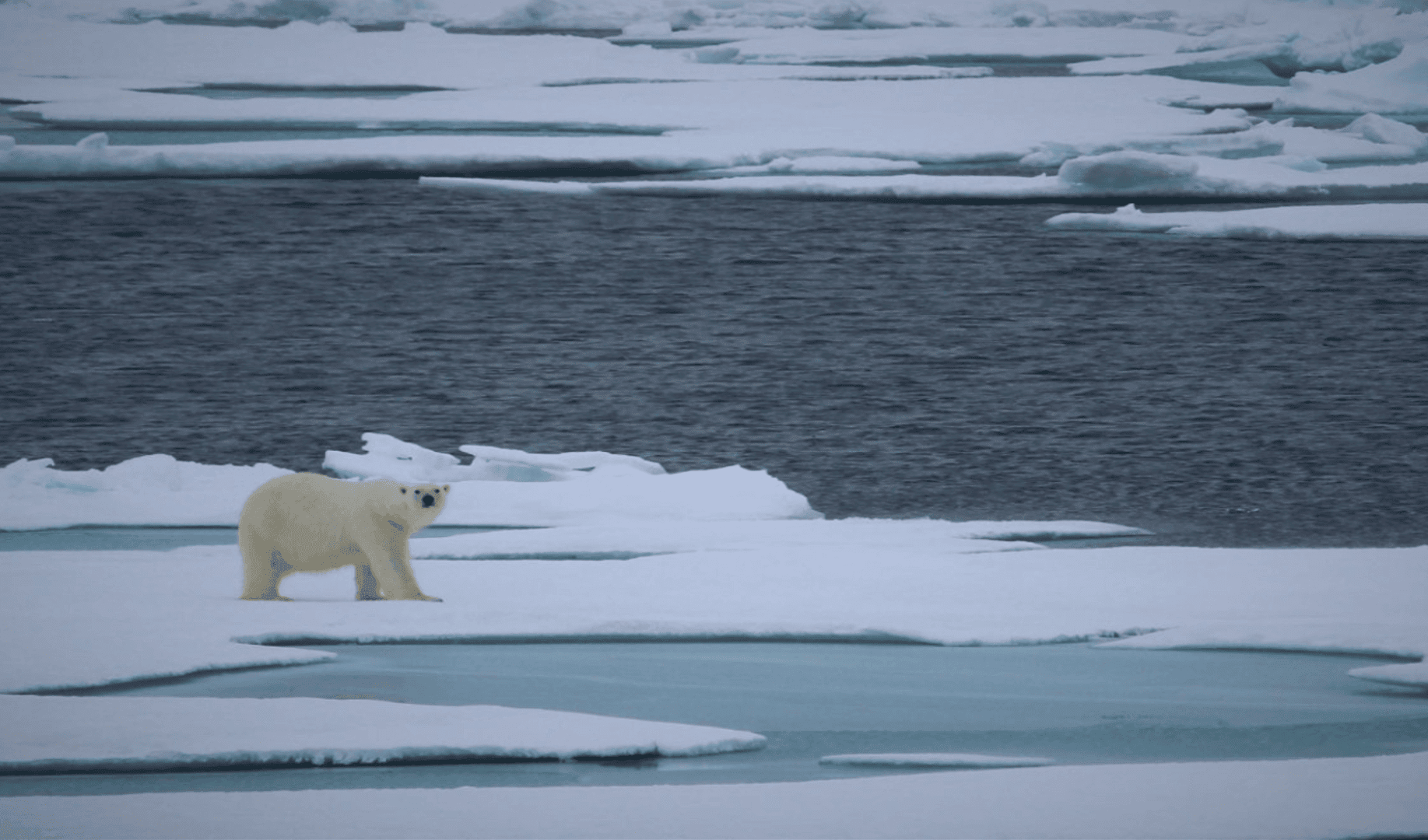
When I’m not living on a ship doing research I teach University students in Bristol. I mainly teach study marine science and oceanography but also sustainability.
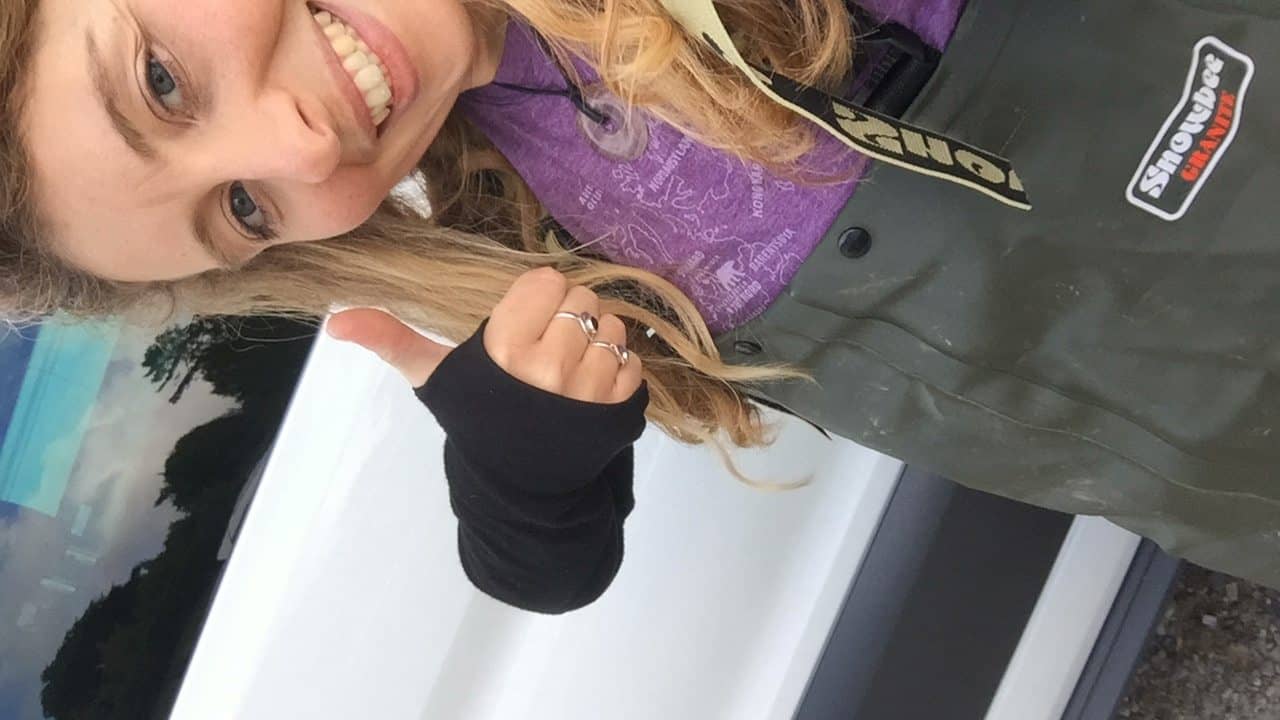
Getting my waders on for a fishing survey with the students
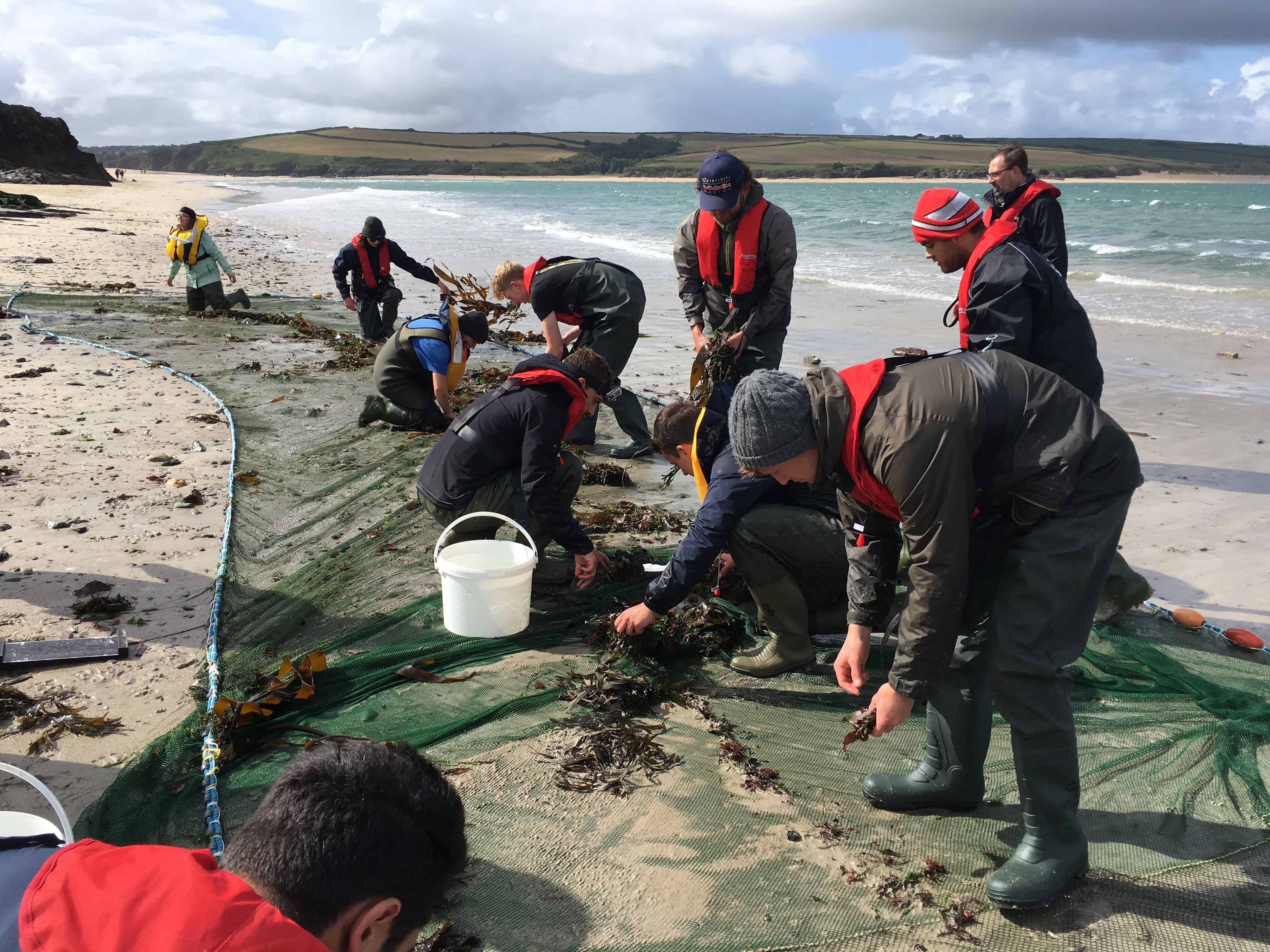
Teaching my students how to do Seine net fish surveys in Cornwall
-
My Typical Day:
If I’m at sea I spend most of my time in the lab on the ship processing samples. When I get a break I’ll either be eating, sleeping or looking for wildlife like whale sharks or polar bears!
When I’m not at sea I spend my days at university teaching students about the environment, helping them learn about the oceans and how to get jobs once they finish studying.
I also spend time researching the oceans and trying to understand more about how they work. I apply for money to carry out my research and to fund my next trip out to sea. -
Read more
When we’re at sea our days revolve mostly around sampling the water and meal times. Sampling usually starts before the sun comes up (and before breakfast!), after we’ve collected samples and done some lab work, it’s time for breakfast. After breakfast we get straight back in the lab to continue analysing samples or running experiments, with a quick break for lunch and a cup of tea out on deck we’ll be in the lab until dinner time. After dinner there’s time for a quick shower or trip to the gym then it’s off to the bar for a drink before bedtime. We tend to get between 2-5hours sleep a night depending on the experiments we’re doing.
If I’m on land my day looks very different! I wake up in my own bed at home and walk my dog Willow. I either go into the office or work at home. My days are vary changeable so I can end up doing all sorts throughout the day. I’ll teach students in the lab, outside or in a classroom/lecture theatre, I might meet students 1:1 to discuss their work or projects. I’ll have meetings about research projects or look over papers we’re writing. I might be doing an open day for new potential students and telling them about our degree course. Sometimes I have to do boring paperwork too (boo!) but I always have a cup of tea and some music to help 🙂
-
What I'd do with the prize money:
Use it to engage more children about the oceans & the wonderful world of plankton! Why plankton are so important for our oceans and our planet.
-
Education:
Weston Favell Lower School
Boothville Middle School
Northampton School for Girls (upper school & A-levels)
-
Qualifications:
Northampton School for Girls
GCSEs
11 subjects including triple science, grades A-CA-levels
Physics (C), Chemistry (C), Geography (C),AS level
French (E!)University of Portsmouth
BSc (Hons) Environmental Science, 1st class
Plymouth Marine Laboratory & University of Warwick
PhD Biological Sciences: Microbial utilisation of methanol in seawater.
AKA how bacteria eat stuff in the oceans! -
Work History:
Papergirl for many, many years
Shop assistant in ‘Birthdays’ (the card store)
Receptionist at my Uncle’s solicitors (in the summer holidays)
After my PhD I worked at the University of Portsmouth as a lecturer in marine sciences for a year. This was maternity cover for my undergraduate supervisor.
After applying for lots of jobs I was lucky enough to get my current job as a Senior Lecturer in Marine Environmental Sciences at the University of the West of England, Bristol.
-
Current Job:
Senior Lecturer in Marine Environmental Sciences at the University of the West of England, Bristol.
-
My Interview
-
How would you describe yourself in 3 words?
Ocean lover & adventurist
What did you want to be after you left school?
Environmentalist
Were you ever in trouble at school?
No, I was a bit of a goody too shoes!
Tell us a joke.
Why did the crab not share any plankton with her friends? ....Because she was shellfish!
-

